Are you a budding author looking to share your literary masterpiece with the world? Crafting a compelling query letter is your ticket to capturing the attention of publishers and securing that coveted book deal. In this article, we'll delve into the essential elements of a successful query letter and offer tips to make your pitch shine. Curious to learn how to effectively present your work? Read on!
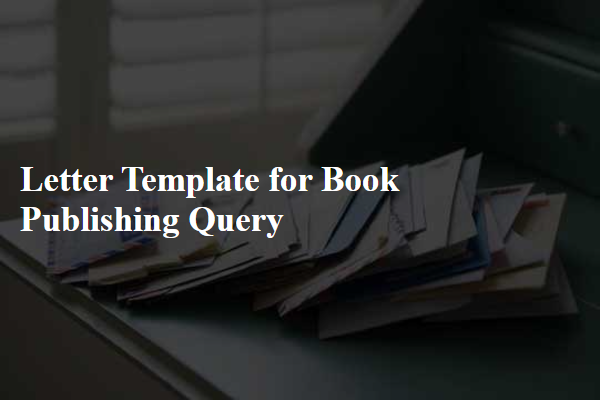
Personalized Greeting
In the world of book publishing, literary agents often receive numerous queries from aspiring authors seeking representation. A personalized greeting at the beginning of a query letter can be crucial in catching the agent's attention. It is essential to address the agent by name, utilizing the correct spelling and titles, as this demonstrates respect and genuine interest. For instance, writing "Dear Ms. Smith" instead of a generic "Dear Agent" can set a positive tone. Such attention to detail reflects professionalism and diligence, qualities that agents appreciate in a prospective author. Personalization can also indicate familiarity with the agent's agency or previous works, establishing a connection that highlights why the author believes their manuscript aligns with the agent's interests.
Engaging Query Hook
An engaging query hook captivates literary agents or publishers, often incorporating unique elements from the manuscript. For instance, urban fantasy novels set in vibrant cities like New York often blend the magical with the mundane, creating an alluring backdrop. A compelling hook might introduce a protagonist, such as a reluctant sorceress battling against ancient dark forces in the streets of Brooklyn, while also reflecting on personal stakes, like the impending collapse of her family's legacy. Incorporating distinct themes like friendship, betrayal, and self-discovery further enriches the narrative, enticing potential readers or publishers to delve into the rich tapestry of the story.
Brief Synopsis
The Brief Synopsis serves as a compact overview of the manuscript, focusing on the core themes and pivotal developments in the narrative. It typically includes essential character information, key plot points, setting details, and the primary conflict that drives the story. For example, in a contemporary fiction novel set in New York City, the synopsis might outline the struggles of a young artist navigating the challenging landscape of the art world while dealing with personal loss. The goal is to engage literary agents or publishers by showcasing unique elements, expected audience demographics, and overall manuscript length, typically between 70,000 to 100,000 words for adult fiction.
Author Credentials
Author credentials play a crucial role in the book publishing process, as they highlight the expertise and qualifications of the writer. For instance, an author with a background in literature or journalism may present a stronger case for publishing a novel or a non-fiction book, respectively. Noteworthy achievements, such as previous publications in renowned journals or awards like the Pulitzer Prize, enhance credibility. Additionally, education (including degrees from prestigious institutions), relevant work experience (such as teaching literature at universities), and involvement in professional organizations (like the Association of Writers & Writing Programs) further strengthen the author's position. Building a strong narrative around these credentials can capture the interest of literary agents and publishers, aiding in the process of securing a book deal.
Polite Closing and Contact Information
A polite closing in a book publishing query typically includes expressions of gratitude and professionalism. This section often concludes the letter by thanking the recipient for their time and consideration of the manuscript. Providing your contact information, such as an email address and phone number, ensures a prompt response and allows for easy communication regarding your submission. Authors also mention their website or social media handles if relevant. A final sign-off, like "Sincerely" or "Best regards," helps maintain a courteous tone. This structure enhances the overall presentation of the query letter, increasing the likelihood of a positive response from literary agents or publishers.

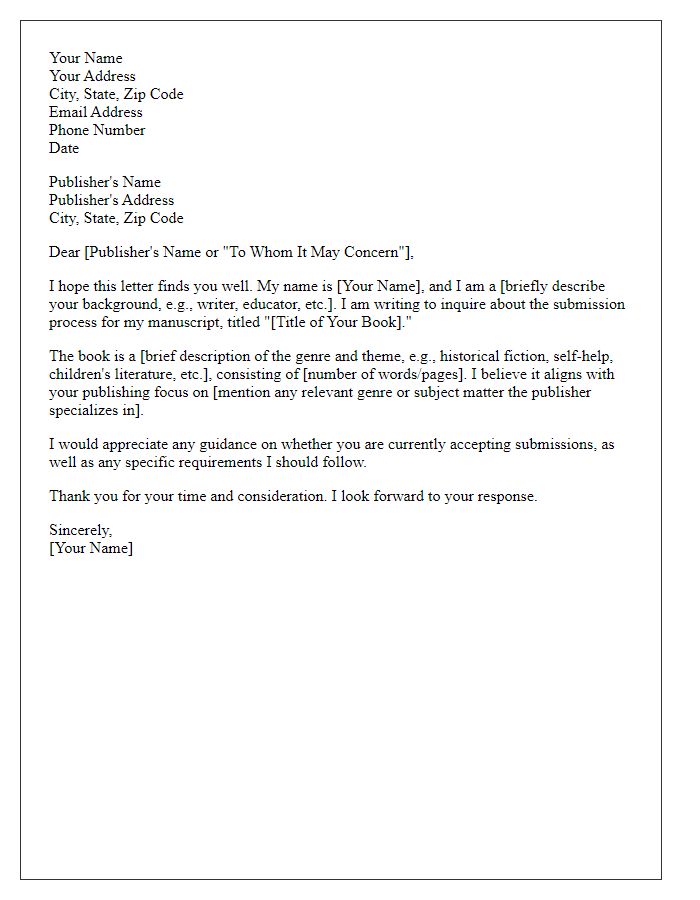
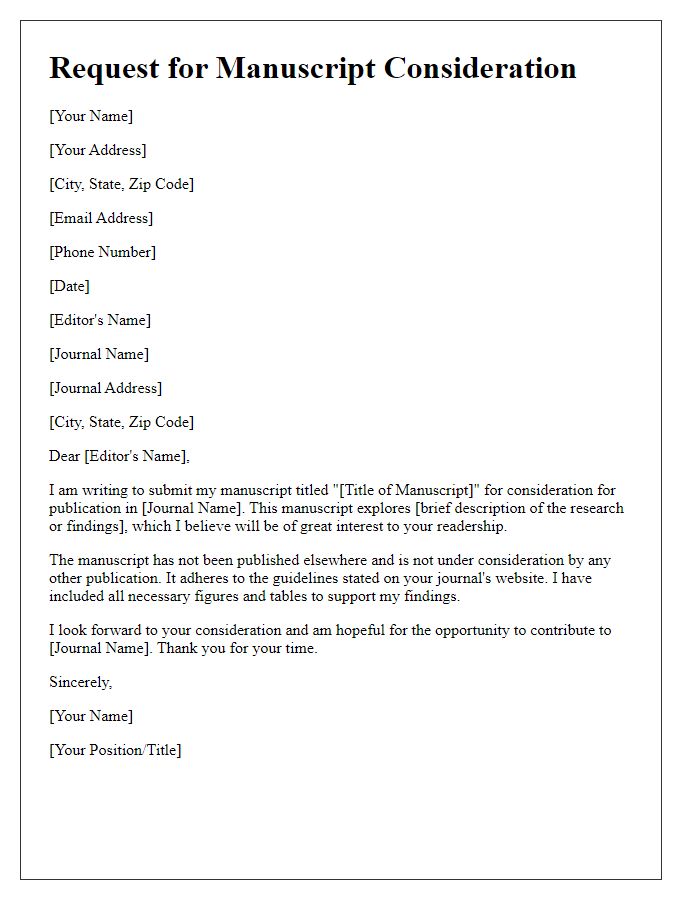
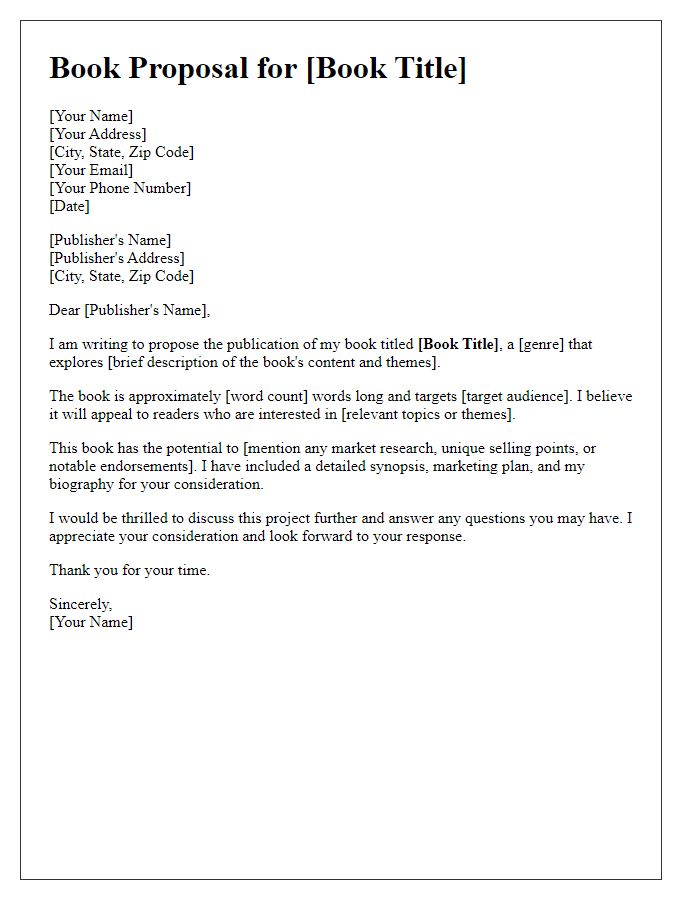
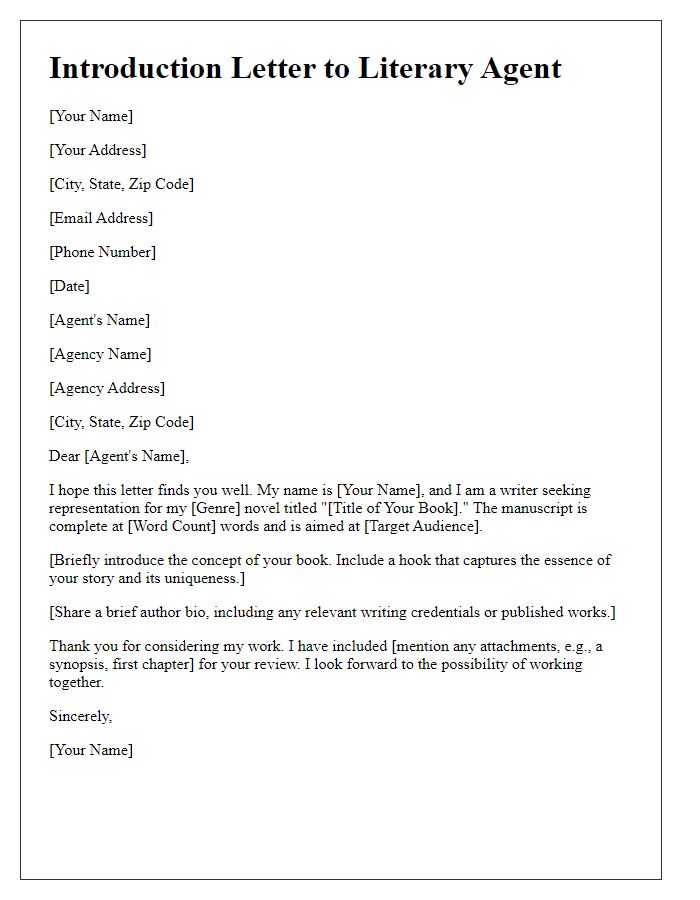
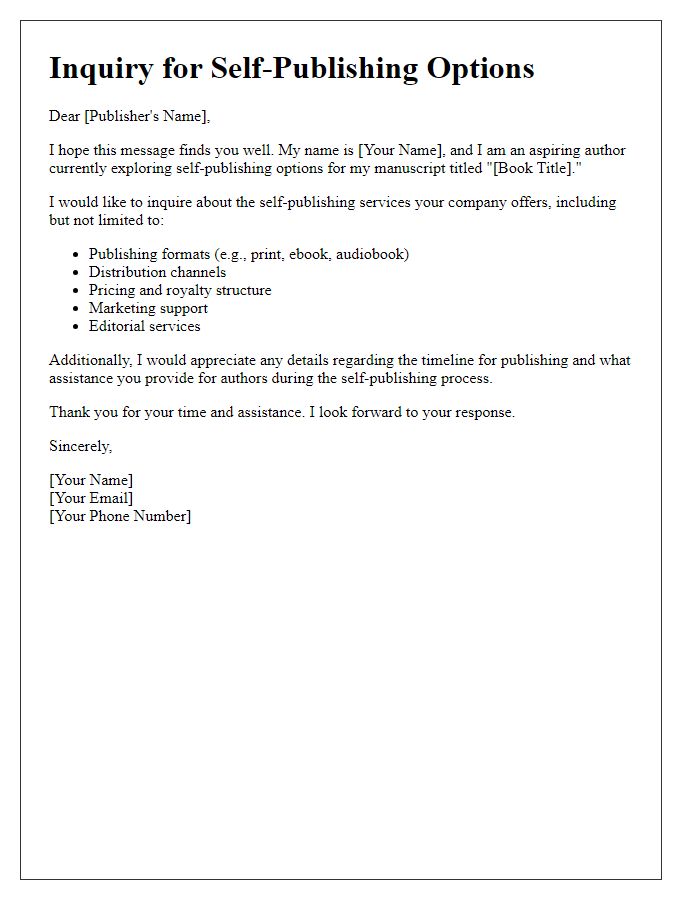
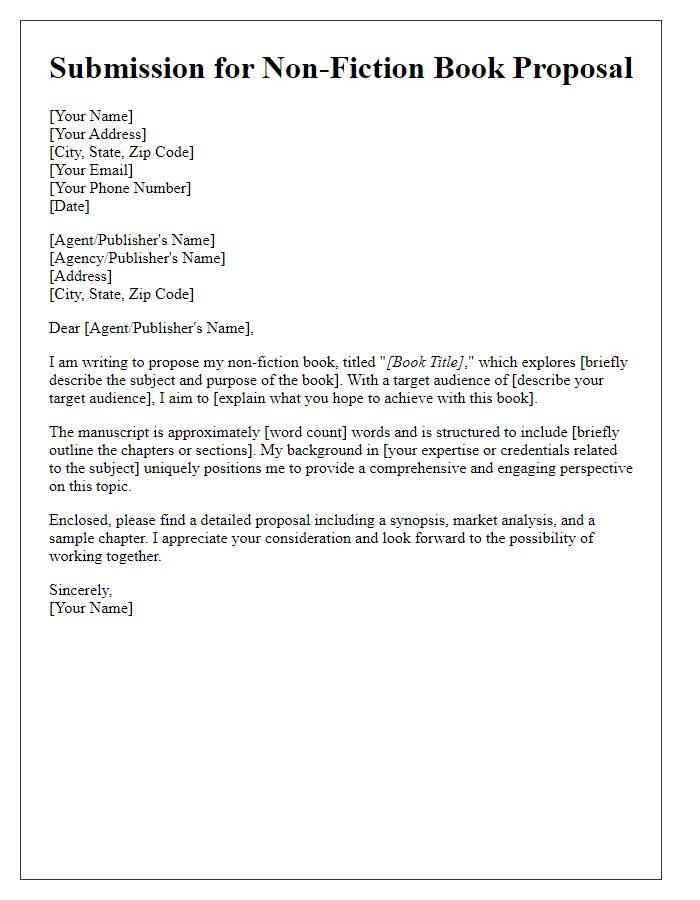
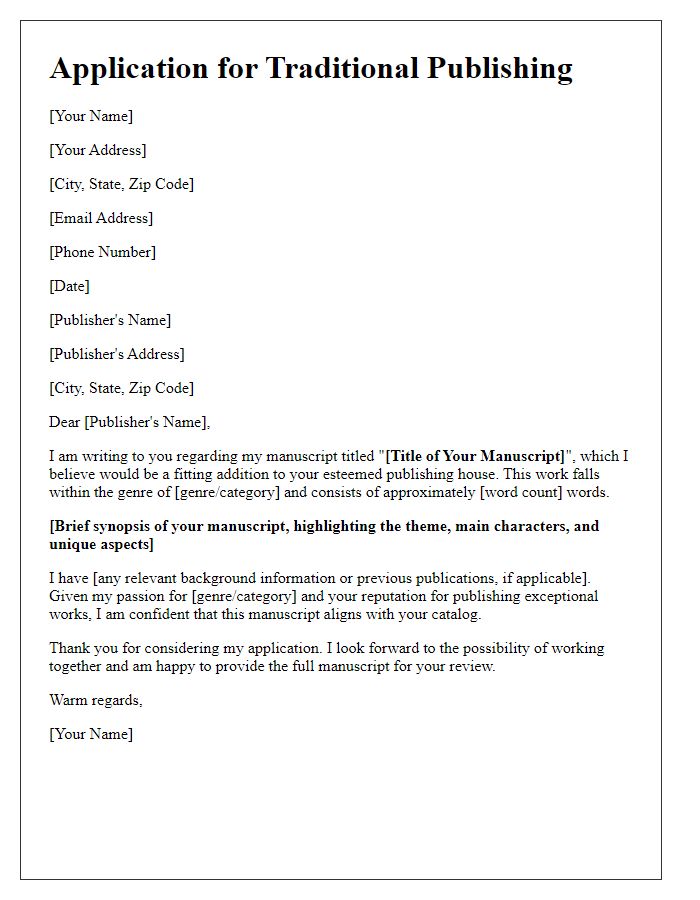
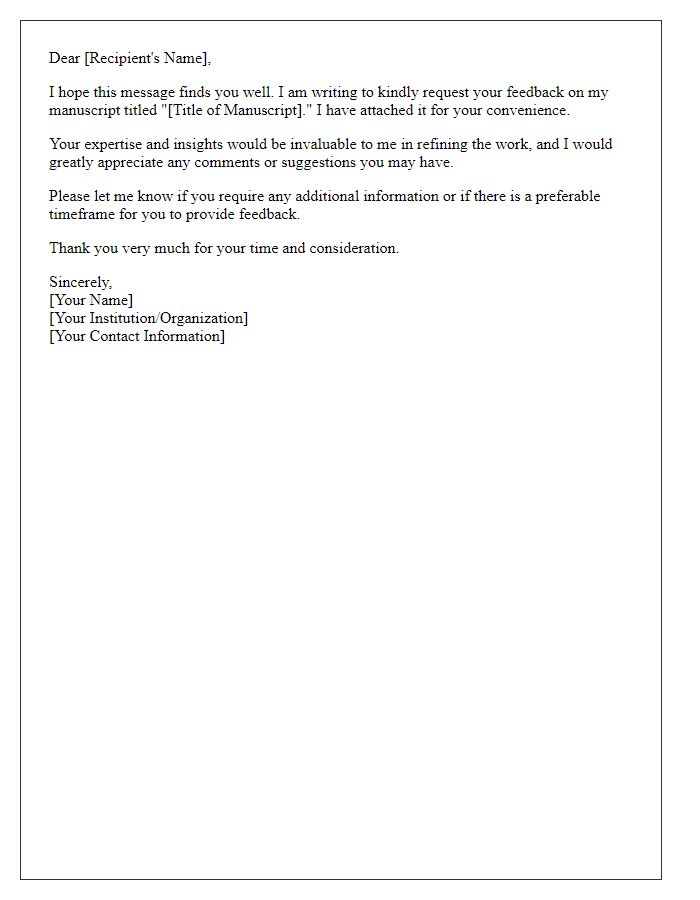
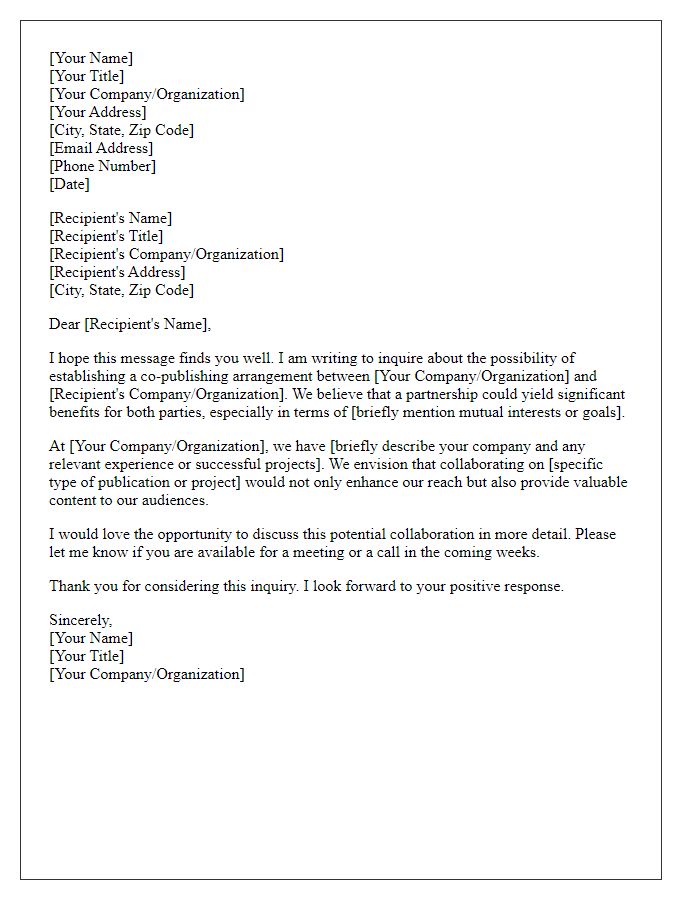
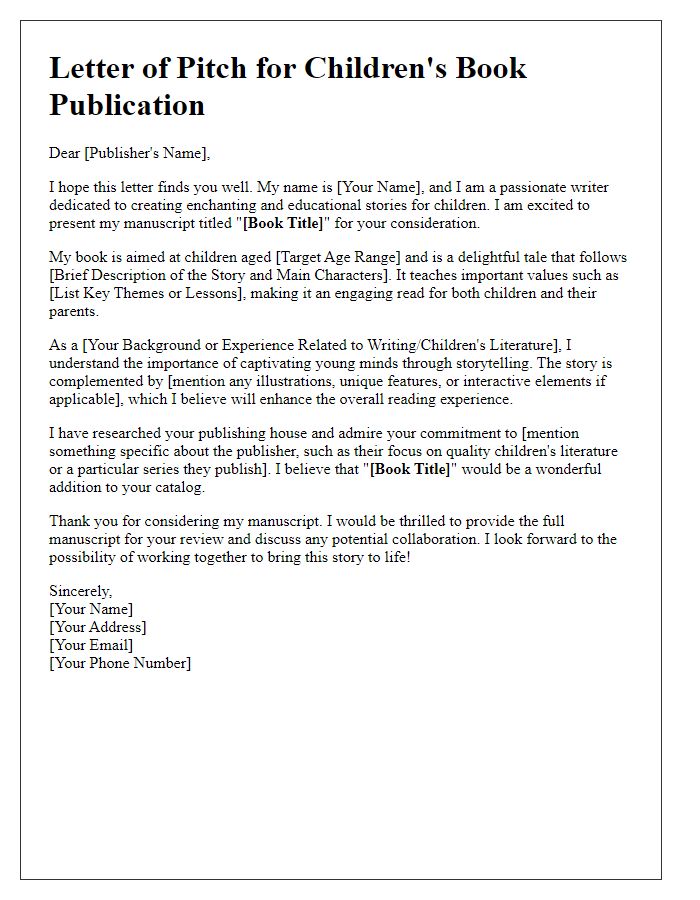


Comments